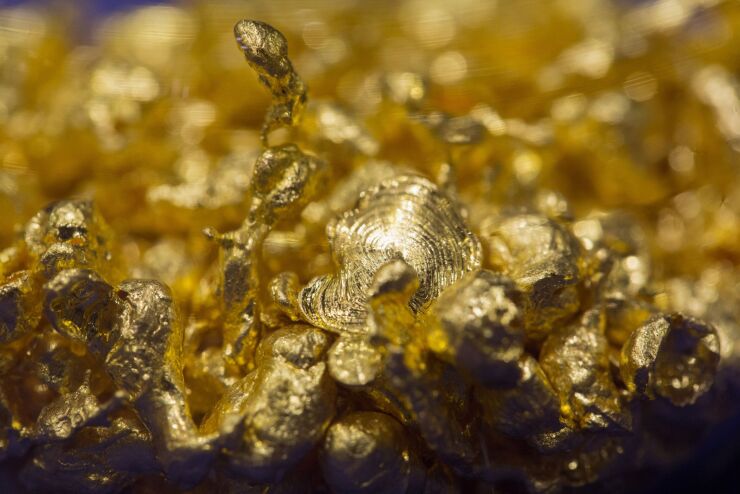This year’s frenzied rush for gold is turning out to be quite a boon for State Street.
The Boston-based firm’s $78 billion SPDR Gold Shares ETF (GLD) is now making more money than any other product in the $4.6 trillion U.S. ETF market.
Annual revenues for the fund have jumped to about $312 million as of July 30, meaning it is out-earning the world’s largest ETF. That’s another State Street vehicle, the $288 billion SPDR S&P 500 ETF Trust (SPY), which generates about $270 million.
A combination of GLD’s higher fees — an expense ratio of 0.4% versus 0.095% for SPY — and an almost relentless demand for the yellow metal have catapulted it from fourth on the revenue leader board in 2017, according to Bloomberg Intelligence data. Coronavirus-fueled market turmoil and the plunge in global bond yields have fueled 19 consecutive weeks of inflows to gold ETFs, with bullion prices soaring to an all-time high this week.
-
The haven has been favored as the coronavirus outbreak has spread beyond China, threatening a pandemic and slower growth.
February 26 -
After years of internal deliberations, Vanguard has decided to open its very first private-equity fund.
February 7 -
While the deadly virus threatens to harm the world economy, the funds have remained popular as the Fed signals low rates for the foreseeable future.
January 29
“It’s a perfect combination of record gold ETF demand and GLD being priced at more than double the industry weighted average expense ratio,” said Nate Geraci, president of investment-advisory firm the ETF Store. “If gold ETF demand continues, GLD can absolutely hold on to the top spot. But competition will ultimately chip away.”
From an issuer perspective, the current rankings may offer consolation amid the fund industry’s ongoing fee war.
Vanguard — the second-largest ETF player behind BlackRock and arguably the cheapest — doesn’t have a single product in the top 10. Its biggest offering, the $154 billion Vanguard S&P 500 ETF (VOO), is the 30th most profitable fund. The 0.03% expense ratio generates just $4.6 million per year.
The triumph of GLD highlights an aspect of competition in the market which is often over-looked: Investors tend to like funds with history. State Street launched a less-expensive gold ETF in 2018, the SPDR Gold MiniShares ETF (GLDM), with an expense ratio of 0.18%. At $3.2 billion the fund is still dwarfed by GLD, which began trading in 2004.
The 20 top-performers have generated gains well over 50% in the first seven months of the year.
The unprecedented demand for gold ETFs could enticebi other issuers into the space, Geraci reckons. There are just 13 gold exchange-traded products listed in the U.S., with industry heavyweights such as Vanguard noticeably absent.
“I’m still surprised Vanguard hasn’t moved into physical gold ETF space,” Geraci said. “It seems ripe for another big player.”







